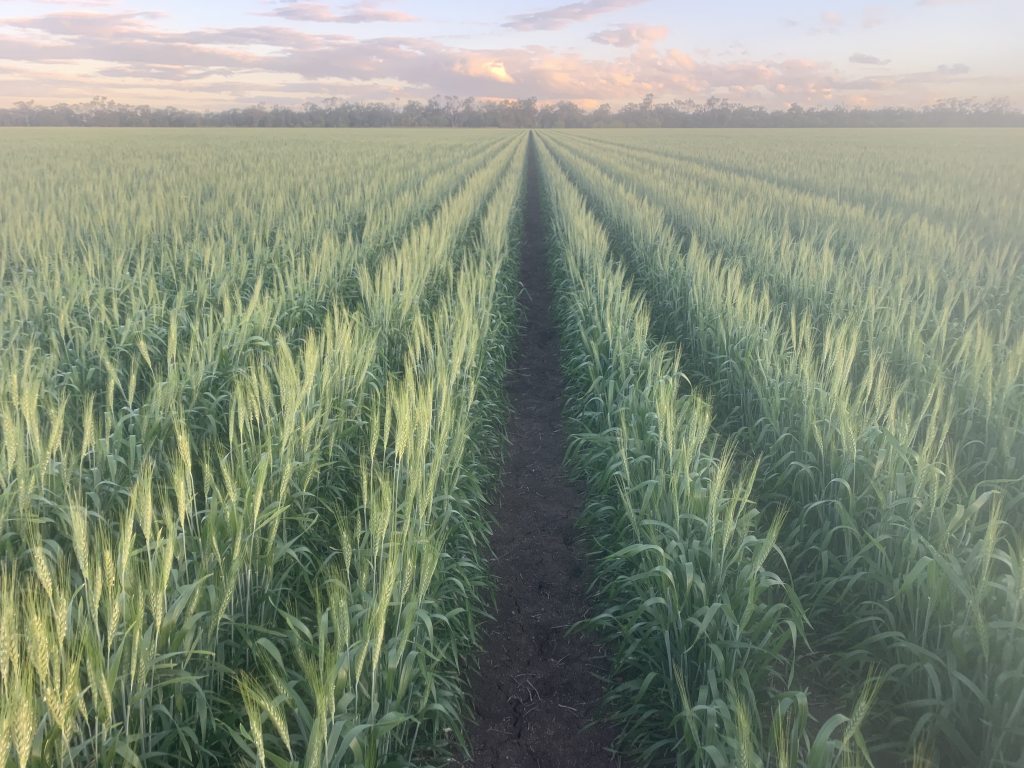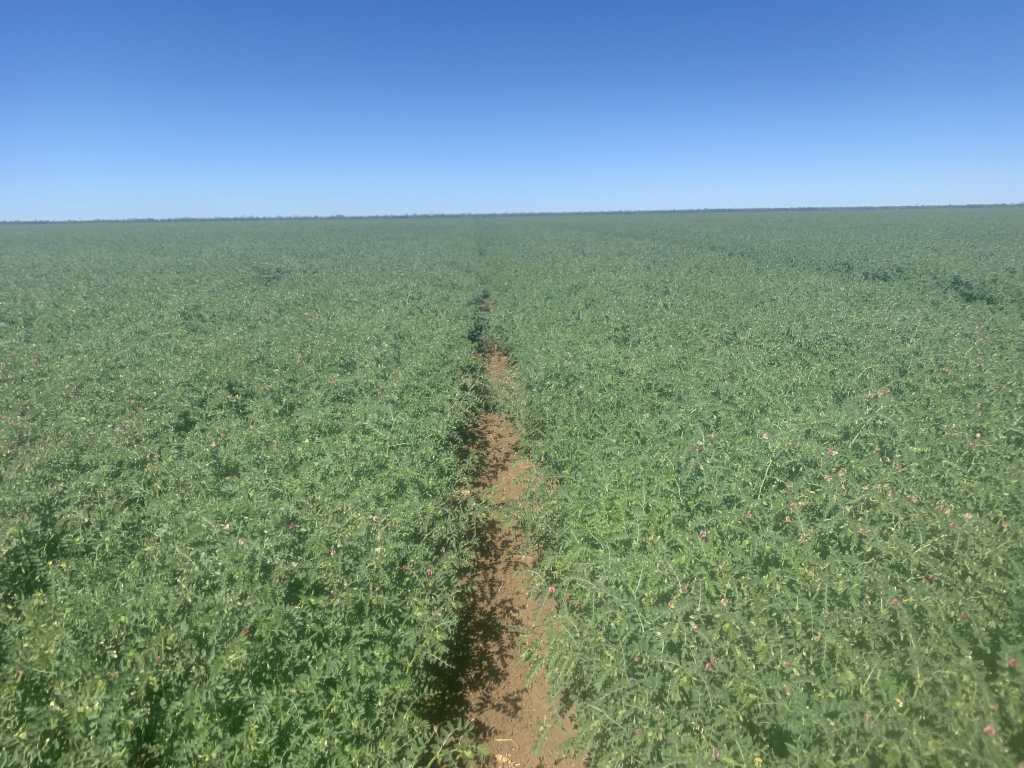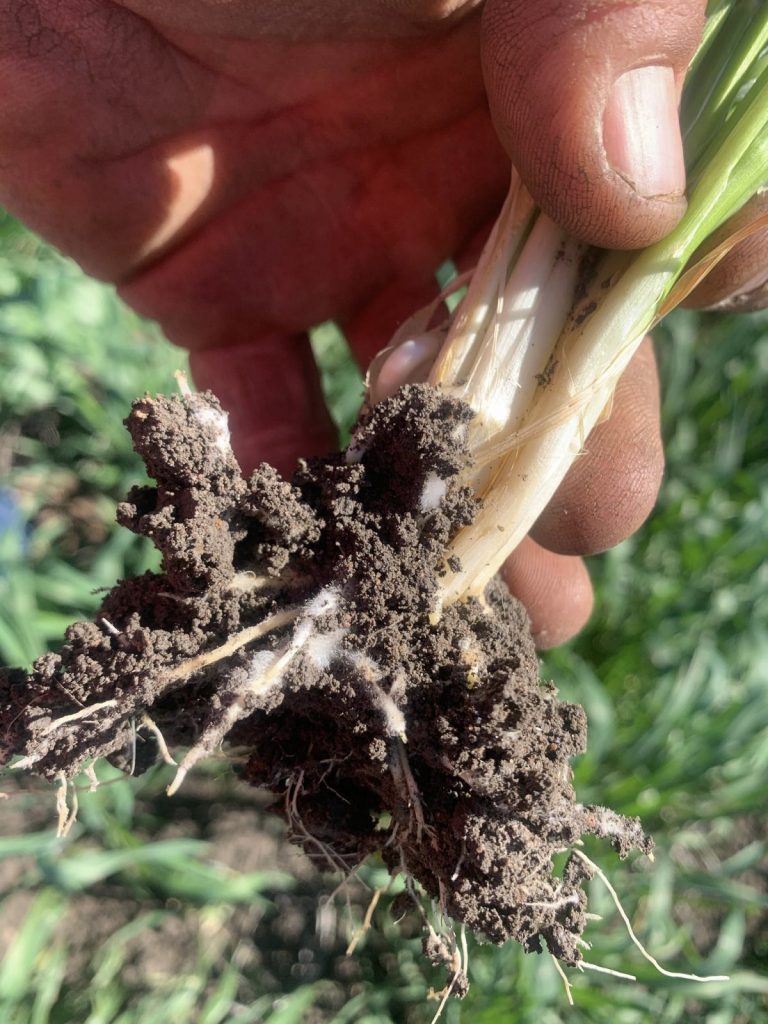
AT A GLANCE
Farm Details
Owners: Bruce and Sally Werner
Location: 85km NE Clermont, QLD
Area: 80 000 acres (17 000 cropped)
Soils: Alluvial Scrub & Black Clay Loam
Rainfall: 590mm
Key Messages
Nitrogen below 5% of district average
Good Rood Development is Key
Risk Mitigation = Profitability
Look after soil health and it looks after production
Resilience in drought = Peace of mind.
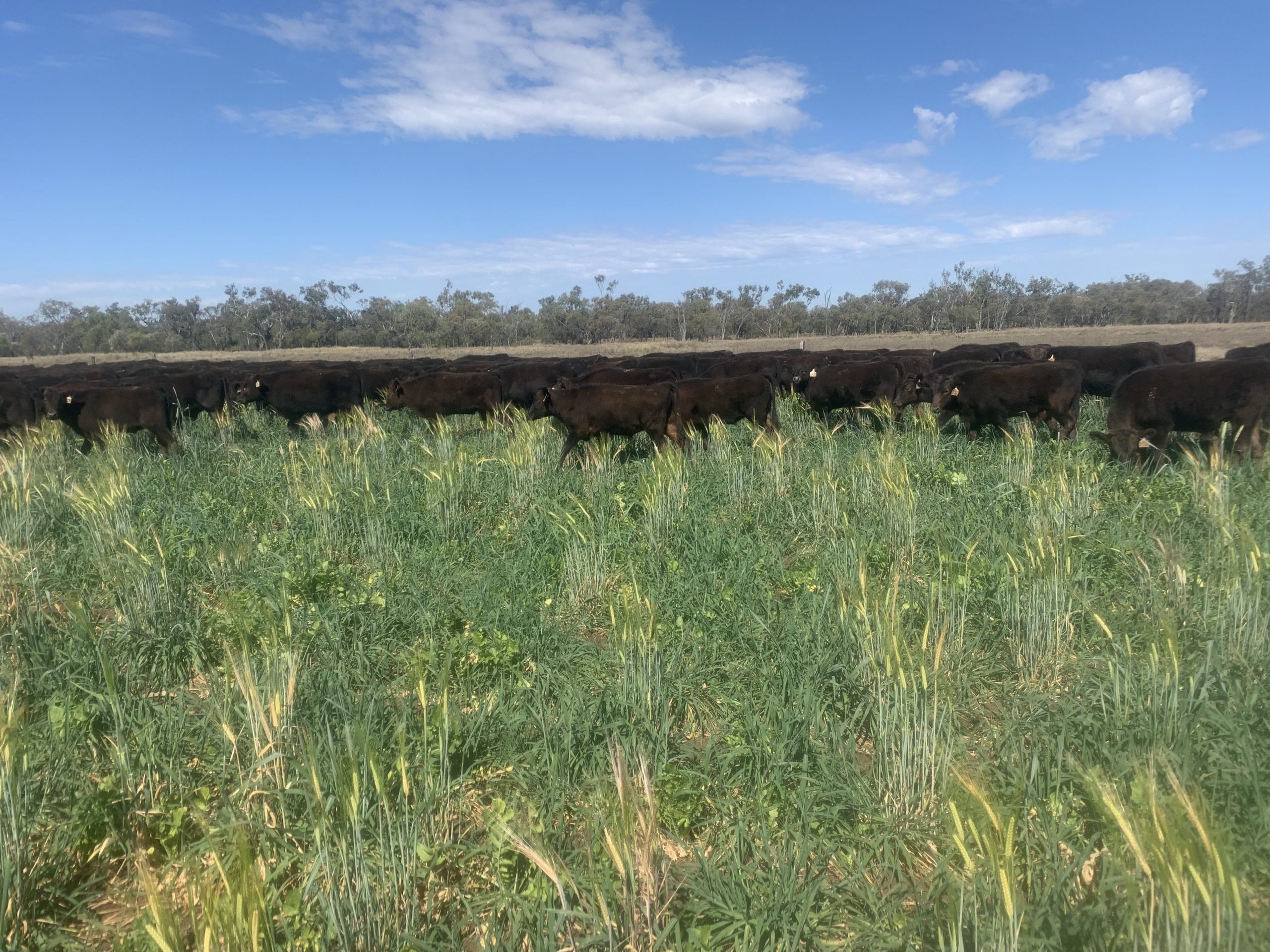
LOW-RISK, NO ADDED NITROGEN CROPPING
Lowering greenhouse gas emissions in crop production, was not the aim when Clermont farmer Bruce Werner started on a sustainable agriculture journey 12 years ago. He just had a gut feeling that jumping on the synthetic fertiliser treadmill was not the best thing for his family farm.
However, results from participating in research undertaken by the University of Queensland and Southern Cross Agricultural Exports showed an average of only 17.42kg CO2e/t of wheat compared to 90.76kg CO2e/t wheat for the average of 11 peer-reviewed papers on Australian wheat production.
“We started out farming from converting pasture, so we didn’t have (to put on) too much (nitrogen).” And although he was not far down the track using synthetic inputs, fertiliser was going to become a huge expense if he followed the conventional farming model.
Bruce’s catalyst to take the first steps to low-input, low-risk farming was seeing the results first-hand on nearby farms, that had been working with the local agronomist from Australian Soil Planners, Matt Barnes.
And now 12 years down the track, Bruce is experiencing his best yielding wheat crop ever and surpassing the regional averages in his third consecutive drought-declared year.
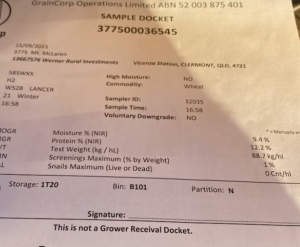
Lancer wheat results at harvest are:
Test weight 88.7
Protein 12.2%
Avg Yield 3.6t/ha over 1400 ha
Chickpea
Avg 2.2t/ha over 2000 ha
“How do I improve the soil? That is number one for me now. How do we create living, healthy soil to grow resilient crops that will survive in dry years. Profitability is a function of the health of your soil.”
Bruce Werner
B E N E F I T S
Resilience
Lower input costs reduce risks in moisture scarce periods
Profitability
Increasing Soil Health has been bringing more consistent profitable years
Wellbeing
Lower stress levels and much better peace of mind.
“ROOT DEVELOPMENT IS KING”
Australian Soil Planners have their growers focus first on growing strong roots to build a strong base for each plant, as well as priming the soil with extra organic matter for the next year’s natural nutrient development.
Bruce has noticed how much impact that soil building capacity has, and now when it comes time for planning the next crop, it’s not just based on a $/ha return.
“I didn’t have the best wheat crop last year,” Bruce said “and if I went into this year looking at the financial return I could get off the land alone the decision would have been to plant chickpeas. I feel I now understand the benefits that great root systems and stubble give, so I went in again with wheat to get a greater root mass and stubble cover. The chickpeas seem to take a lot of that out of the equation, so now my decisions are not just season by season, but focus on the long-term gains”
Bruce’s Wagyu business is also benefitting; recently the Werners came home with a silver medal in Class 3 of the Master Selection entry in the Australian Wagyu Association (AWA) branded beef competition. The addition of cover cropping is giving more flexibility in their feed programs, which they now plan in conjunction with the 3000 acres of fodder crops grown for their herd.
“Our planting plans include sorghum, wheat, chickpeas, mung beans, fodder, and cover crops, with at least 10% of our ground planted into cover crops of triticale and tillage radish annually. We treat our covers as cash crops in terms of inputs, so use liquid fertilisers on them as well.”
Soil Planners advocate a planting strategy that is designed for each plant to fully develop its rooting potential so the planting rates are lower than what might usually be expected in a cover crop, and Bruce has planted his Triticale and Tillage Radish mix covers at a rate of 15kg/ha and 1kg/ha respectively in alternate rows.
“I’m as content as I can be with the rainfall that we receive, as I have set up my soil the best I can for success.”
It’s not that there aren’t costs involved in farming this way, it’s that they bring consistent returns with less risk.
I’m less reactive now to things.”
Bruce Werner
ATTENTION TO DETAIL
Working with Soil Planners has made Bruce much more observation-focused and attentive. “Now that I am with Soil Planners, I look at the ground and look at what I can do for it instead of seeing how I can get the most profit off it. The more I go through it the more I see how neglected soil biology is in the conventional farming teachings.”
Australian Soil Planners also teach their farmers to focus on providing the right environment for soil biology to flourish, equipping the soils for natural nutrient cycles to re-establish. Their philosophy regarding soil biology is “everything is everywhere”, not a focus on the addition of “bug in a jug” amendments. They coach their farmers in providing the right food and environment for the biology naturally occurring in the soil.
Another positive is the support and networking the group offers: “What I like about Soil Planners is that there are a lot of “outside of the box” ideas shared in the group, and when we apply them to our own business, we can then trial those small changes. Often from those small changes come new ideas that we hadn’t previously considered.”
VISUAL IMPROVEMENTS
“There is so much more cover on the soil. Our soil is soft or “fluffy” now, we seem to catch more water or it’s soaking in more. You can see a depression after a big rainfall event, where you can actually see the water has been soaking in. Two of the biggest goals I have are that we have more sun protection to lower evaporation rates, and we have better water capture”
There are changes to “usual” chemical inputs too. “This year, we would have normally put out a chemical application to control weeds, but we didn’t need to because we planted a cover crop directly into the sorghum stubble. It’s an unknown if we have to do more work, it’s more like swapping out what we would usually do for another option that looks after the soil.”
Bruce’s Focus now: “How do I improve the soil? It’s number one for me… how do we create living, healthy soil to grow resilient crops that will survive in dry years. Profitability is a function of the health of your soil.”
“How do I feel about farming now compared to before?”
“Phenomenal! 9/10… 10/10! There is a great sense of satisfaction from improving the soil, and from satisfactioncomes motivation, and the more motivated you are the more willing you are to try new things as well.”
Bruce Werner
RISK MANAGEMENT TO INCREASE RESILIENCE
When asked if he is seeing resilience in times of moisture stress: “Yes definitely! We look at the cash flow more than anything (to measure this) and we don’t have years that are failures now. It’s not the wet years that we need to worry about, it’s that we can now produce a harvestable crop even in dry years.”
“I will always plant a crop, even if the full (moisture) profile is not there these days. I’m planting the crop to try to have something living in the soil. My mindset has changed to be more flexible with cropping options, and I’m trying to keep stubble cover on everything coming into summer.”
And this new mindset and the management strategies are having positive effects on his bottom line.
“We are reducing planting rates, looking after the soil, and understanding what it needs. Our gross margin is increasing relative to costs. Our net return has increased. It’s not that there aren’t costs involved in farming this way, it’s that they bring consistent returns with less risk. I just feel that the risk is managed better than previously, and the stability of income is much better. I’m sure it has a massive effect on families and although farming still has stress, it’s more manageable under Soil Planners agronomy.”
SATISFACTION AND PEACE OF MIND
When asked how he feels about farming now compared to before he stated:
“Phenomenal! 9/10… 10/10! There is a great sense (of satisfaction) from improving the soil, and from satisfaction comes motivation, and the more motivated you are, the more willing you are to try new things as well. It creates a more open mindset.”
“I’m less reactive now to things.”
It’s not just a job to Bruce, “This is my interest and I love doing it. The Ag sector is full of opportunities and we are lucky to be involved in it.”
Werner Rural has been an ASP Certified Producer since 2017 and has been supplying Bread wheat, and historical grains to Wholegrain Milling for their ASP Certified Milling

